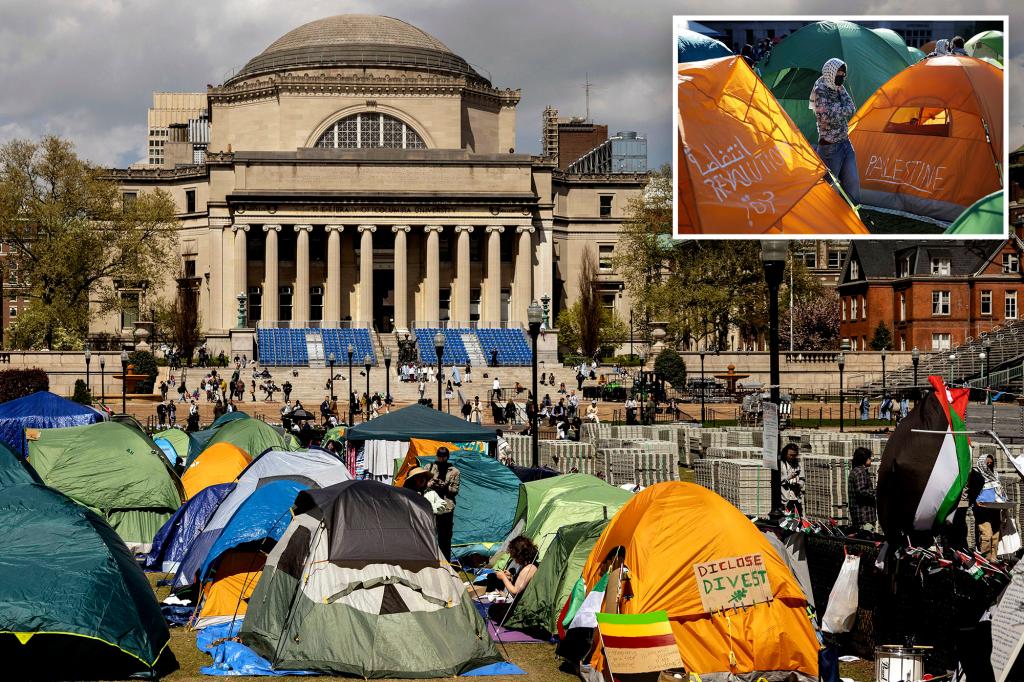The anti-Israel encampment at Columbia University has been ongoing for ten days, with organizers refusing to consider taking down the tents until the administration progresses on their demands. Negotiations are focused on demands, not the encampment itself, with no new time limits given for students to clear the lawn. The five core demands include financial divestment from companies profiting from Israeli apartheid, cutting ties with Israeli universities, ceasing expansion into specific lands, defunding public safety, and calling for a ceasefire in Gaza.
Negotiations with the university have been met with some resistance as officials seem unwilling to understand the core demands of the student movement. Previous attempts to break up the original encampment led to arrests, sparking similar actions on other university campuses nationwide. The primary focus of the students is on a complete divestment and boycott of institutions complicit in Israel’s actions. However, requests for engagement with Israel have been met with disagreement, with the university suggesting increased access to Palestinians instead of ending specific programs.
The situation at Columbia has led to divisions on campus, with Jewish students reporting feeling unsafe due to protesters calling for Israel’s destruction. The encampment has disrupted campus life, with restrictions being placed on spring classes due to the ongoing strife. As the encampment continues, some in the community are becoming frustrated with the ongoing protest, feeling that the protesters are being selfish and not considering the impact on other students. Photos from the encampment show a cluttered scene on campus, with protesters receiving supplies and support to sustain their resolve.
Despite ongoing negotiations, the encampment at Columbia University shows no signs of ending anytime soon. The demands put forth by students are focused on divestment from companies profiting from Israeli policies, severing ties with Israel, and making public statements in support of Gaza. The encampment has sparked conversations about free speech on campus, safety concerns for Jewish students, and the impact of ongoing protests on the wider community. It remains to be seen how the university will respond to the demands and whether a resolution can be reached to end the encampment and restore normalcy on campus.


